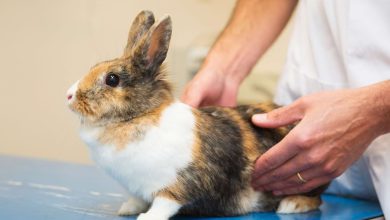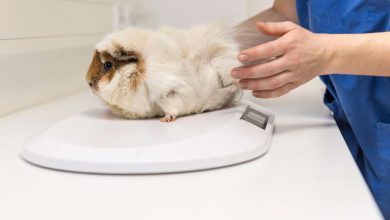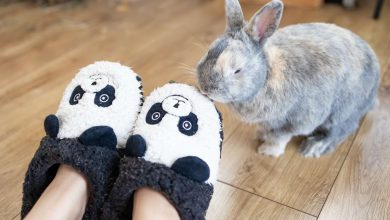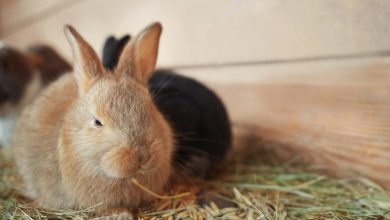Black Masked Lovebird – A Guide To This Lovely Bird Specie
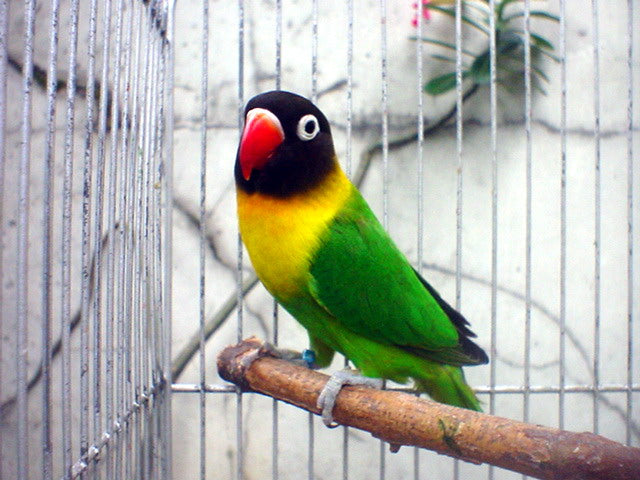
As the name suggests, the black masked lovebird loves to live in pairs and a couple of them would make charming pets. They are intelligent and easy to train as well as cuddly and cute.
And…
When kept in pairs, the black masked lovebird makes a lovable and adorable pet. If you are thinking of adopting black masked lovebirds, here is everything you need to know about this species.
Black Masked Lovebird Overview
The black masked lovebird (Agapornis personatus) is named after it’s facial coloring, which incidentally looks like a black mask, and is native to central and northern Tanzania although some flocks have been found in Kenya. They usually populate well wooded grasslands and inland plateaus. First imported in the 1920’s they have been bred in captivity and become very popular pet birds across America and Europe.
Although numbers in the wild have decreased since they have become more readily imported, the black lovebird is not endangered. Breeding in captivity has led to some variations in color, such as the Fischer’s lovebird, and there are several other popular sub species of lovebird including the peach-faced lovebird.
Characteristics Of The Black Masked Lovebird
Physical
This small bird is just 5.5 inches long and weighs around 50 grams. Their wingspan is around 3.5 inches but even with these small wings they have plenty of energy for flying around. Named after their black faces, they also have white rings around their eyes which make their masks like facial markings really stand out. Despite being recognized by their black mask, their most prominent colorings are a bright yellow breast and green plumage on their wings and backs.
Behavior
Aside from the chirping, black masked lovebirds can be relatively quiet pet birds if kept happy. They don’t talk but they are quite intelligent and you can train them to do a range of other tricks like fetching items and dancing. Lovebirds in general are also very energetic and the black faced lovebird is no exception. They will need plenty of toys and time outside of their cage to keep them entertained or they will start to get aggressive and neurotic and you may find that they start to make more noise.
Although better when paired with another bird, this black lovebird can be aggressive towards new birds you introduce to them, especially if they are protective over their partner. They also love to chew on things so make sure you give them a choice of chew toys. These smaller birds can live up to 20 years which is considerably less than large parrots.

Raising A Black Masked Lovebird As A Pet
Temperament
These lovebirds are certainly affectionate towards their partners and can often be seen grooming and snuggling with each other. If you want them to be as affectionate towards humans, they will need regular handling from a young age. If raised alone, they will need even more attention so we would recommend getting a pair to avoid aggressive behavior. As they can also be quite nippy, they’re not the best pet for young children.
However, they are intelligent and fun to train. They can easily learn to do a few tricks and play with you. Being curious and very energetic, they are a bit of a handful when out of their cage so keep an eye on them trying to hide inside things.
Training
Although they aren’t talkers, these black lovebirds can be trained to do a range of things. They make a good pet bird for a first-time bird owner because they are relatively easy to train but you need to remember that they will play up if they don’t get plenty of attention even if you train them well. With diligent attention, you can train them to fetch and do tricks like spin around and bob their heads.
If not properly trained and socialized, the masked lovebird can become nippy and start to bite other birds and people. They will also chew most things so you will want to train them to stick to their chew toys or hide anything you don’t want them to chew through. A good way to train them out of chewing is by giving them toys they can shred up and pieces of paper to keep them occupied.
Home Type
Although not particularly noisy, the black faced lovebird will start to make high pitched noises if it doesn’t get enough attention. If you train them well and keep them with a partner, their noise should be minimal making them suitable for smaller homes. As small birds, they also don’t need a huge space for their cage but will need plenty of time outside of the cage to fly around so be sure to bird proof your home.
Don’t try to throw them into the same cage as other birds, or introduce them to new birds without warning as they may become aggressive. If you have a pair who are happy together, they should have their cage to themselves instead of being introduced to new birds which they might not get along so well with.
Experience Level
As black masked lovebirds are intelligent and easy to train, they are suitable for first time bird owners. Make sure that you read up on how to care for black faced lovebirds carefully before adopting a couple.

Proper Care For Black Masked Lovebirds
Cage Size And Setup
Small birds like the masked lovebird need a cage that is at least 24 inches wide x 24 inches deep x 24 inches high and has bar spacing of ½ to 5/8 inches. You can find this sized cage in many different designs to suit your home. They are very active and love to fly around so will also appreciate a larger cage or plenty of time outside of the cage. Make sure you fill their cage with a range of toys to keep them occupied when they are inside including swings and perches they can fly between.
Diet
The black masked lovebird should have a stable diet of bird seed supplemented with lovebird safe fruits and vegetables as well as other minerals. You can get mineral blocks to supplement their diet which will also give them something to chew on. They can also eat grains like wholegrain pasta and multigrain bread. Don’t give your black lovebird any human food or fruits and vegetables without checking it is safe for them to eat first. Steer clear of avocados, rhubarb, asparagus, onions, raw legumes, and dairy products as they are toxic to lovebirds.
Breeding
Black masked lovebirds can breed from quite a young age, as young as 10 months old. They really live up to the lovebird name and mated couples can produce several clutches of eggs per year. During breeding season, male birds can become more aggressive and you will need to provide a nest box where the female will incubate eggs for around 23 days. Masked lovebirds even share childcare with the male taking over feeding duty after two weeks. They are very easy to breed and regularly bred in captivity.
Exercise
As active birds, black lovebirds should be outside of their cage for 3 – 4 hours a day but the amount of time they need to fly around will depend on your bird. If you have a small cage and see that they are getting agitated, let them out for longer. Make sure you also introduce new toys regularly to entertain them.
Price
Lovebirds can cost between 50 and 200 USD depending on their breed and rarity. They are regularly sold in pairs so you should consider the price of getting more than one if you don’t want to end up with a noisy and irritable solo lovebird.

Health
These birds are pretty high maintenance and will need their claws trimming regularly. They also love to take baths so providing a bird bath or just filling your sink with water when they are out of the cage is a good idea. Black masked lovebirds also molt twice a year and can become irritable around this time. They can also contract a range of illnesses including:
- Psittacine Beak and Feather Disease
- PolyomaVirus Infection
- Yeast infections (Candidiasis)
- Avian Pox Virus Infection
- Bacterial infections
- Internal parasites
- Mites and ticks
- Egg binding
- Intestinal influenza
- Coccidiosis
- Respiratory ailments
- Diarrhea
If you notice your black lovebird behaving unusually, take them to an avian vet who can check for these illnesses.
Comparable Species
There are several color variations and species of lovebird which are comparable to the black masked lovebird, some of the most popular include:
- Fischer’s lovebird
- Peach faced lovebird
- Red-headed lovebird
Summary
The black masked lovebird makes a great choice of pet bird for new owners as they are loving, intelligent and easy to train.
A friendly reminder…Get a pair of lovebirds instead of just one if you really want to create a happy environment and avoid any problematic behavior.
